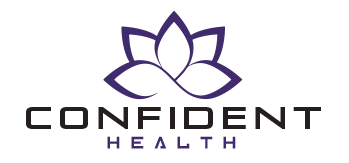What would your mental health look like in a world without social media?Pretty hard to imagine, right?
Many of us are so mixed up with our social accounts that it’s difficult to remember what we did before the feed.
There are plenty of upsides to online connection, but how do we find balance with the constant flurry of input from friends, family, celebrities, and brands constantly vying for our attention?
To help you do just that, Healthline and Psych Central invite you to joinour 10-Day Digital Disconnect Challenge on Instagram.
In a recent Healthline survey, we asked readers how they feel aboutsocial media. Of those we asked, 25 percent said they feel it has anegative effect on their mental well-being, and 53 percent said they feelthat cutting down on usage could help.
That number jumps to 66 percent among those with a mental healthcondition that started or worsened during the pandemic.
On top of that, 29 percent of respondents said they need at least a fewdays of break to benefit from a social media hiatus, while that numberjumps to 46 percent among 15 to 24-year-olds.
That’s why we’re challenging you to take an introspective look at howyour social media behavior affects your mental well-being.
Over a 10-day period, Healthline and Psych Central will help you create ahappy, healthy relationship with social media through interactive journalprompts, digital boundary-setting tips and tricks, and some hard-to-hearsocial media truths.
Don’t worry, we’ll have a little fun along the way, too!
Our feed, along with thousands of other social media users, will be radiosilent as we fully unplug, unwind, and unlearn the social media habits thatcan hurt mental health — and we encourage you to do the same.
Want to know more about the benefits of stepping away from socialmedia and how to tweak your feed for your mental health? Read on.
How social media affects mental health
So, what does the research have to say about the effects of social mediaon your health and well-being? You might be surprised to learn moststudies aren’t too favorable.
In fact, your brain may just be begging you to slow your scroll.
A 2015 study found that U.K. children were twice as likely to report high orvery high scores for mental ill-health if they used social networking sitesfor 3 hours or more on a school day.
A small 2018 study found a direct link between decreasing social mediausage and improvements in depression and loneliness.
In a 2021 survey by ExpressVPN, 86 percent of a sampling of 1,500Americans reported that social media directly negatively impacts theirhappiness and self-image. Between 79 and 83 percent reported negativeeffects on anxiety, loneliness, and depression.
A 2022 cross-national online survey of the United States, U.K., Australia,and Norway found that those who used social media for entertainment orto decrease loneliness during the pandemic experienced poorer mentalhealth.
While using social media for personal contact and maintainingrelationships was associated with improved mental health, there was stilla correlation between increased daily time on social media and poorermental health overall.





